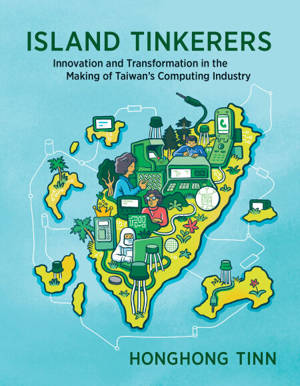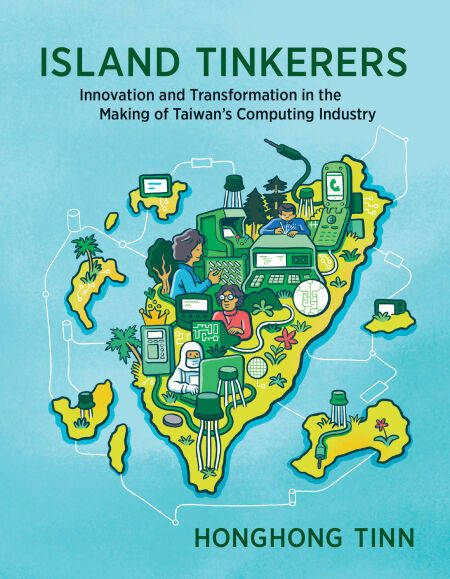
- Retrait gratuit dans votre magasin Club
- 7.000.000 titres dans notre catalogue
- Payer en toute sécurité
- Toujours un magasin près de chez vous
- Retrait gratuit dans votre magasin Club
- 7.000.0000 titres dans notre catalogue
- Payer en toute sécurité
- Toujours un magasin près de chez vous
Island Tinkerers EBOOK
Innovation and Transformation in the Making of Taiwan’s Computing Industry
Honghong Tinn
59,14 €
+ 59 points
Description
How Taiwan rose to global prominence in high tech manufacturing, from computer maker to the world’s leading chip manufacturer.
How did Taiwan, a former Japanese colony and the last fortress of the defeated Chinese Nationalists, ascend to such heights in high-tech manufacturing? In Island Tinkerers, Honghong Tinn tells the critical history of how hobbyists and enthusiasts in Taiwan, including engineers, technologists, technocrats, computer users, and engineers-turned-entrepreneurs, helped transform the country with their hands-on engagement with computers. Rather than engaging in wholesale imitation of US sources, she explains, these technologists tinkered with imported computing technology and experimented with manufacturing their own versions, resulting in their own brand of successful innovation.
Defying the stereotype of “the West innovates, and the East imitates,” Tinn tells the story of Taiwanese technologists’ efforts over the past six decades. Beginning in the 1960s, they grappled with the “black-boxed” computers that were newly available through international technical-aid programs. Shortly after, multinational corporations that outsourced transistor and integrated circuit assembly overseas began employing Taiwanese engineers and factory workers. Island tinkerers developed strategies to adapt, modify, assemble, and work with computers in an inventive manner. It was through this creative and ingenious tinkering with computers that they were able to gain a better understanding of the technology, opening the door to future manufacturing endeavors that now include Acer, Foxconn, Asus, and Taiwan Semiconductor Manufacturing Company (TSMC).
How did Taiwan, a former Japanese colony and the last fortress of the defeated Chinese Nationalists, ascend to such heights in high-tech manufacturing? In Island Tinkerers, Honghong Tinn tells the critical history of how hobbyists and enthusiasts in Taiwan, including engineers, technologists, technocrats, computer users, and engineers-turned-entrepreneurs, helped transform the country with their hands-on engagement with computers. Rather than engaging in wholesale imitation of US sources, she explains, these technologists tinkered with imported computing technology and experimented with manufacturing their own versions, resulting in their own brand of successful innovation.
Defying the stereotype of “the West innovates, and the East imitates,” Tinn tells the story of Taiwanese technologists’ efforts over the past six decades. Beginning in the 1960s, they grappled with the “black-boxed” computers that were newly available through international technical-aid programs. Shortly after, multinational corporations that outsourced transistor and integrated circuit assembly overseas began employing Taiwanese engineers and factory workers. Island tinkerers developed strategies to adapt, modify, assemble, and work with computers in an inventive manner. It was through this creative and ingenious tinkering with computers that they were able to gain a better understanding of the technology, opening the door to future manufacturing endeavors that now include Acer, Foxconn, Asus, and Taiwan Semiconductor Manufacturing Company (TSMC).
Spécifications
Parties prenantes
- Auteur(s) :
- Editeur:
Contenu
- Nombre de pages :
- 448
- Langue:
- Anglais
- Collection :
Caractéristiques
- EAN:
- 9780262380263
- Date de parution :
- 06-01-25
- Format:
- Ebook
- Protection digitale:
- Adobe DRM
- Format numérique:
- ePub

Les avis
Nous publions uniquement les avis qui respectent les conditions requises. Consultez nos conditions pour les avis.






